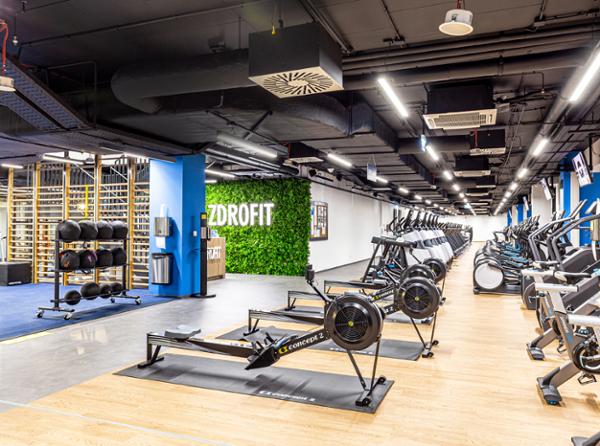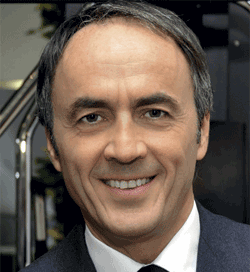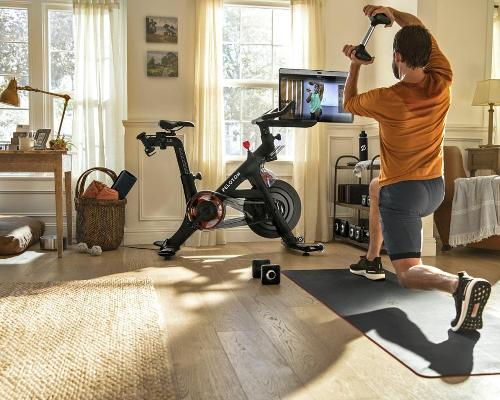Following three years of disruption with COVID-19-related restrictions, 2023 marked the first year of clear trading and this was reflected in all key European market indicators: revenues increased by 14 per cent; memberships by 8 per cent and there was a 1 per cent increase in the number of clubs.
Revenues of European brick-and-mortar operators amounted to €31.8 billion, exceeding pre-pandemic record levels for the first time. The two-digit percentage upswing in revenues was impacted not only by expansions and membership increases but also by widespread price increases passed on to consumers due to inflationary cost pressures.
Most fitness club operators surveyed for the report said they’d have upped their prices for one month and 12 month contracts compared to 2022.
By the end of 2023, the European market counted approximately 65,000 clubs and around 67.6 million members. The surpassing of pre-pandemic membership levels was primarily driven by the expansion of the larger operators, and by a rebound effect in some countries, however, at national level, some countries – such as Germany – were still slightly lagging behind pre-pandemic membership and revenue levels at the year end.
The big hitters
The Top 20 operators by turnover at the close of 2023 generated €6.3 billion in revenues – a 19 per cent increase on 2022 and exceeding pre-pandemic levels. In terms of memberships, the ranking was led by Basic-Fit with 3.8 million (this had exceeded 4 million by April 2024), RSG Group with 2 million and PureGym with 1.9 million. Combined, they accounted for around 44 per cent of the entire membership count of the Top 20 European operators.
In total, the Top 20 fitness operators by membership recorded 17.4 million members by the end of 2023, an increase of about 13 per cent when compared with the previous year. The club network of the 20 largest operators grew by 7 per cent to 6,155 clubs. Hence, the Top 20 operators were able to outperform the aggregated European market across all three KPIs – turnover, memberships and number of clubs.
Consumer behaviour
In 2023, the three key fitness settings – outdoor, at-home and in a health club – remained complementary for consumers who exercise regularly (defined as being at least once a week). However, the proportion of multi-location users had decreased slightly, driven by a shift away from home fitness towards clubs.
When choosing a health club, the most important factors according to regular users were price and value for money, followed by the quality of the equipment, location, and opening hours.
Perhaps surprisingly, social factors, such as community, recommendation or socially/ecologically sustainable practices of the operators played a less important role in the club selection process. For people who do not exercise regularly (or at all), it is mainly intrinsic reasons, such as general motivation, or lack of time, that prevents them from exercising more frequently.
Mergers and acquisitions
In 2023, a total of 12 merger and acquisition deals (where a minimum of four clubs changed hands) saw the ownership of 142 clubs transferred. This is around six deals less than the ten-year average of 18 deals per year, but only marked a decrease of one compared to the previous year.
The top three transactions by the number of transferred clubs were the acquisition of the Swiss fitness chain NonStop Gym by the financial investor Invision AG (31 clubs); the sale of Actic Group’s 22 clubs in the German-speaking countries to German fitness operator, ACISO Holding, and the acquisition of 17 Aktiv Trening clubs by Norwegian company, Norsk Treningshelse AS.
Considering the last five years, the number of deals and deal volumes varied markedly. This is due not only to the impact of the recent interest environment, but also to the influence of individual market participants.
In the last five years, the number of transferred clubs has mainly been driven by a small number of significant deals. In fact, the three largest transactions accounted for roughly 50 to 70 per cent of the total clubs transferred.
Deal volume peaked in 2020, impacted by the acquisition of 240 Fitness World clubs by PureGym and 240 Keepcool clubs which were bought by the holding company Group3S.
During the last two years, M&A activities of four companies headquartered in Poland (Benefit Systems, Medicover) and Germany (BestFit Group, LifeFit Group) made up 40 per cent of the deal quantity in this period – 10 of 25 deals.
Summary
In 2023, the fitness facility sector continued to grow and exceeded pre-pandemic levels on an aggregated European level. However, European fitness operators faced inflationary pressure, resulting in increased membership prices for consumers. In addition, the development of interest rates impacted M&A deal quantity and volume. In light of the continuous growth of the market and a required future development that would be fairly in line with pre-pandemic growth. EuropeActive continues to target 100 million members by 2030 (= a CAGR of 5.8 per cent).
Environmental agenda
As well as shedding light on overall market trends, development and M&A activity, this year’s Deloitte report details information on sustainability regulation in the EU and insights on equipment suppliers and intermediaries, as well as analyses of consumers’ fitness activity and behaviour.
For the latter, EuropeActive commissioned Deloitte to conduct an extensive piece of consumer research, which surveyed 10,840 consumers living in 19 different European countries to establish their views on the market.
* European Health & Fitness Market Report 2024 (184 pages), by Deloitte, in partnership with EuropeActive, can be ordered at www.hcmmag.com/Deloitte2024


























































